Putting oneself in a position to decide the next 40 years of one’s life is a hard job. The decision becomes a little less difficult to make when you know the launch pad that will help you achieve your career goals. This launch pad is the university that you choose. It is a place that either will put your career on the right track or will lead you nowhere, leaving you confused and perplexed.
For future scientists and engineers, the Syed Babar Ali School of Science and Engineering (SBASSE) at LUMS is the leading institution for multidisciplinary education and research in the field of pure and applied sciences.
This is the only School in Pakistan that rigorously caters to Science and Engineering Education under one roof. Students undergo a diverse range of experiences, preparing them for the formidable demands of modern careers in Science and Engineering.
SBASSE has brought a paradigm shift in the field of Science and Engineering education in Pakistan, nurturing global leaders and entrepreneurs of tomorrow by providing each student with problem-solving skills as well as enabling them to meet the needs of both domestic and global industry and society.
Already, two centers within the School have gained prominence for their work solving on-going national crises: the Centre for Water Informatics and Technology (WIT), which is working towards solutions for the impending water shortages; and the Energy Institute, which is developing solutions addressing the current energy crisis. Additionally, work done by both SBASSE students and alumni in the fields of Communications & Networks, Machine Learning, and Artificial Intelligence has earned LUMS global recognition and accolades.
Water Informatics and Technology (WIT) focuses on hydro-informatics and system analysis, engaging faculty and students from all departments of SBASSE; and additionally forging collaborations among the different schools within LUMS to provide much-needed interdisciplinary perspectives to water issues.
A world-class advisory group at the center of WIT includes Dr. James Wescoat, Professor, Massachusetts Institute of Technology, and Dr. Sally Benson, Professor, Stanford University. WIT gave a call for seed grants to enhance the capacity of the Centre to execute larger projects with help from LUMS faculty and students spanning themes ranging from smart water grids to reservoir operations.
When we spoke with Zahoor Ahmed, an electronics engineer who is part of the core team, he said,
At the Centre for Water Informatics and Technology, I have been working on technology interventions for water resources management since 2012. We are indigenously developing electronic devices. At LUMS, we have better opportunities to do these things more efficiently. At the Centre for Water Informatics and Technology, we don’t have to worry about funds if we want to do tasks related to the problem of water resources.
The Energy Informatics Group (EIG) within the Energy Institute focuses on renewable energy analytics, smart grids, and energy efficiency. The LUMS Energy Institute, in collaboration with the U.S.-Pakistan Centre for Advanced Studies in Energy (USPCAS-E) at UET-Peshawar, has worked on a feasibility study to introduce electric vehicles in Pakistan.
Three different simulators have been designed which calculate the load due to the addition of EVs, compare electrical vehicles and fuel flexible vehicles, along with the effect of EV load on the power grid. The research in this domain has the potential to garner great success in the transport industry of the country.
“Electric Vehicles are life-changing not only for Pakistan, but for the entire world. These are a hassle-free way to inflate the economy with a green eco-system. From fossil fuel vehicles to electric vehicles, from thermal power plants to greener power plants, whatever the scale of investment needed, this is a must apply to meet emission reductions all over the world. It entails communal empathy to co-opt this,” says Malik Arslan, currently working on an EV project.
The LUMS Computer Science department is also undertaking research in the realm of Machine Learning and Artificial Intelligence. On-going research targets the areas of data warehousing concepts, data modeling techniques, Data Lake, Big Data, BI reporting and visualization, and AI/ML concepts.
Smart technology and artificial intelligence is the future and research in this domain has already started showing results in the retail industry. To ensure that work is done rigorously, the department has fully equipped labs with hardware and software resources for the development and evaluation of algorithms and computational models for analysis of large structured and semi-structured data sets. This special focus has resulted in multiple success stories for both LUMS alumni and faculty.
“Deep machine learning provides a means to derive insights from the data which is the key component of the new economy. LUMS offers all the key courses in the new emerging field of data science. Here at LUMS, we also have access to local and international datasets and computing resources that allow working on cutting-edge research problems enabling developing data-driven analytics,” says Dr. Murtaza Taj, an instructor at the CS Department.
The most prominent alumnus in the field of artificial intelligence from LUMS is Haris Aziz, who has been named among ‘AI’s 10 to Watch’ by the IEEE Intelligent Systems magazine. The Pakistani computer scientist is currently working as a senior researcher in Data61, which is Australia’s largest data innovation group. Dr. Aziz was recognized for his work on the design of preference aggregation algorithms.
Sohaib Arshid, a CS graduate from LUMS, says,
The faculty at the CS department, especially the instructors in the NLP group, helped me get the experience and exposure required for a fresh graduate to apply for research/industrial positions in the field of ML and AI. Not many people can mentor the way Dr. Asim Karim does when it comes to AI and ML. He pushes you to work on creative problems which not only help in hands-on coding experience, but also grooms you into becoming a better researcher.
Zain Butt who is a CS major worked on Artificial intelligence combined with Computer Graphics. Sharing his experience, he said:
LUMS was always accommodating us when we wanted to explore new fields and was appreciative of the work we did. I got partial funding to present our research paper in Taiwan. They still need to work on providing state of the art computing machines, because that is a bottleneck in hi-end research.
A notable inventions was done by a team of researchers working in the Medicinal Chemistry group of the Department of Chemistry and Chemical Engineering at SBASSE who published a research article, titled, Inhibition of Dengue Virus Protease by Eugeniin, Isobiflorin, and Biflorin from the Flower Buds of Syzygium aromaticum (Cloves) in ACS Omega. Hafiza Nosheen Saleem, under the supervision of Dr. Muhammad Saeed discovered a natural product (eugeniin) from cloves as a potent ‘hit’ for the development of a new medicine for the treatment of the dengue infection.
SBASSE at LUMS also launched the Clinical and Translational Imaging Lab on June 1, 2018. This is in line with the University’s mission to achieve the highest academic standards and provides state-of-the-art teaching and research facilities to its faculty and students. When we had a conversation with Dr. Hassan Mohy-ud-Din of the Electrical Engineering Department, he said, “The Clinical and Translational Imaging Lab will open a whole new world of multidisciplinary research to the students of SBASSE. Research in this lab will exploit engineering and applied mathematical tools to address problems at the frontier of Smart Healthcare.”
Not only this, keeping the department’s tradition alive, LUMS BS Chemistry seniors, who will graduate in June 2019, have received multiple admission offers from prestigious universities in the USA including the University of Illinois Urbana-Champaign (UIUC), University of Minnesota, Texas A&M University, Ohio State University, University of Massachusetts Amherst, University of Florida Indiana, Michigan State University, Rensselaer Polytechnic Institute and Indiana University Bloomington.
These are only a few of the many examples of the work being done in the fields of Science and Engineering at SBASSE. LUMS has its doors open for all of you brilliant young scientists and engineers of tomorrow; providing exceptional opportunities to all the students who are keen to learn and excel and encourages all of you to apply to the MS/PhD Programmes at SBASSE by April 2, 2019 and become part of a community that strives to innovate.
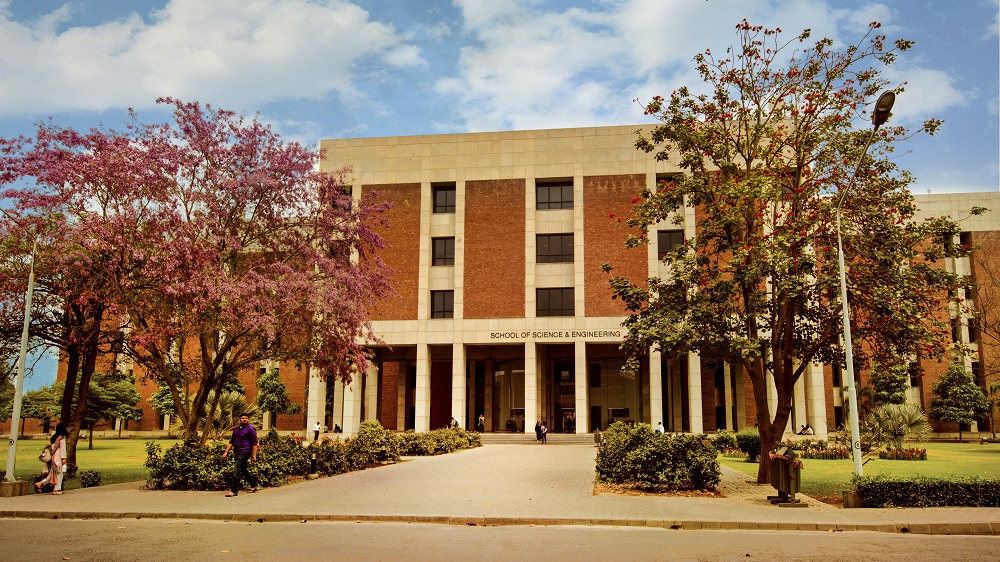
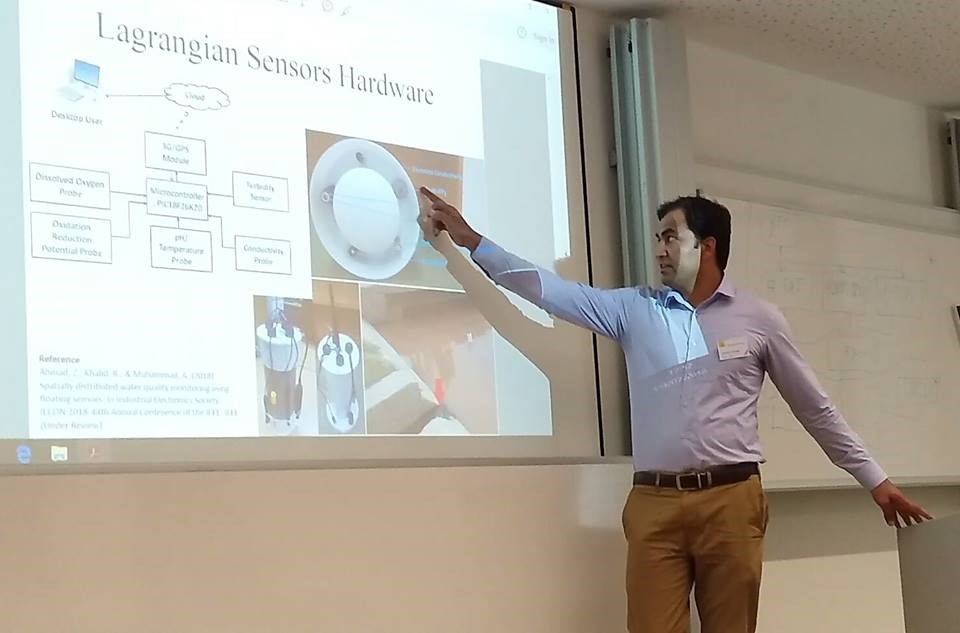




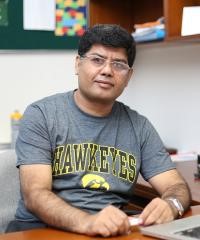
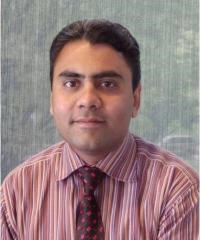


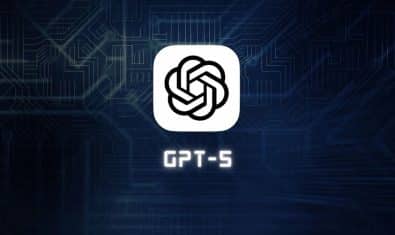























Elite institute for elite people; ever widening spiral of class inequality. The real tragedy is that elite capture of every sphere of life isn’t even an issue worth talking about in this country. You may wonder why is this so? Well, obviously like everything else they – the elites – set the narrative.
Need to upgrade public sector university as they are old and have diverse expertise.
Most of the scientist belong to public sector university are highly qualifiedt